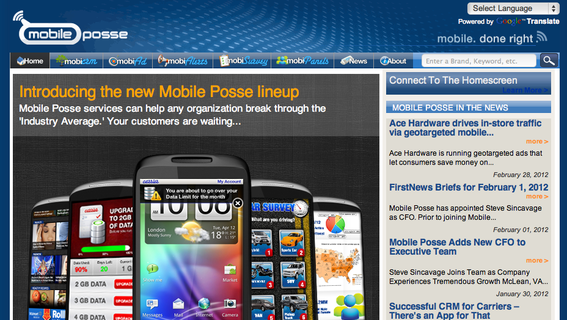Running an affiliate program often requires managing relationships with thousands of different advertising partners. This can be challenging, as different types of affiliates have different marketing needs. Last month, in “Segmenting Your Affiliates,” I addressed two of the most common segments: (a) coupon and deal sites, and (b) content sites. This month, I’ll look at affiliates who specialize in search engine marketing and mobile marketing.
Search Engine Affiliates
There are two types of affiliates that use search engine marketing to drive revenue: Those who specialize in search engine optimization, and those who specialize in pay-per-click advertising. There is certainly some overlap in both strategies. But I’ll review each niche individually.
Affiliates who specialize in search engine optimization will likely have many sites, each one customized to rank highly in search engine results. If the commission rate is attractive enough, an SEO affiliate may build a site specifically for a retailer’s product or program.
Securing high search result rankings takes time. So it may take longer for top SEO marketers to surface in your program. These affiliates first have to build a relevant site that is likely chock-full of keyword heavy content. Then they have to establish a network of credible back links. A good example of a highly ranked affiliate site is BuyTwilightStuff.com, which promotes products related to the Twilight book and movie series.
BuyTwilightStuff is an affiliate site focusing on the Twilight book and movie series.
To help these SEO affiliates, offer up content such as product reviews or copy, and allow affiliates to adapt them for their own use. Additionally, since it takes time to customize a site, work with the affiliates to develop sites that have longevity. Customized sites and high search engine rankings are useless if the product they are promoting has low margin or low inventory.
Affiliates who specialize in pay-per-click advertising focus their efforts on securing paid placements within the search engines. They will use their own funds to build and bid on specific keyword campaigns. Their goal is to drive high converting traffic to your site, thus earning more in commission than they spent on acquiring the click. Since these affiliates are using their own funds, they are usually highly resourceful and cost-effective. To help, provide them with keyword lists, conversion rates, and even consumer information such as geographic density of purchases or even time-of-day analysis. If affiliates know that the majority of widgets on your site are sold to consumers in New York on weekday evenings, they will focus on driving consumers from New York to your site on weekday evenings. You can identify successful PPC affiliates by conducting a search in Google for one of your products and excluding paid ads that belong to you or your competitors.
Many affiliate managers are concerned about pay-per-click affiliates because of potential conflict with internal PPC efforts, potentially driving up the cost for clicks. However, remember that retailers typically have deeper pockets than affiliates, and it is in the affiliate’s best interest to keep costs low since they are working on commission.
There are affiliates who specialize in trademark or brand bidding. Many larger companies choose not to work with these affiliates because of trademark protection: If consumers search for a particular trademark, they already know what they want and a PPC affiliate is simply siphoning away what would otherwise have been a brand-driven sale. Conversely, while you might be able to prevent PPC affiliates from bidding on one of your trademarks, you likely cannot prevent one of your competitors. As such, there is a benefit to allowing affiliates to bid on your trademark and block off real estate on the search result page.
I typically recommend — if you do not have a dedicated, internal search team — that merchants select a few PPC and SEO affiliates to work closely with, to ensure they are optimally positioned within search engine results.
Mobile Affiliates
Mobile marketing is a burgeoning new arena. Affiliates who specialize in this marketing avenue bid for placement within mobile sites and apps, build custom apps or utilize other methods to drive mobile commerce.
At the basic level, mobile affiliates need creative advertisements in specific sizes: At the more advanced level, mobile affiliates may require access to an API, so that they can pull your site content into an app or other service.
One of my favorite integrations of mobile marketing is MobilePosse, an Atlanta-based affiliate company.
MobilePosse sends advertisements from its affiliate partners via cell phones.
MobilePosse partnered with several cellular networks to drive messaging to idle screens — i.e., the black screen you see when your phone is not in use. The idea was that MobilePosse would push relevant content to your idle screen at strategic points in the day. For example, in the morning, you might receive notification of local weather or news headlines. In the evening, you might receive traffic reports. At other opportune times, MobilePosse would push marketing messages, such as restaurant specials around lunchtime, or coupons for flower delivery around Mother’s Day. If the consumer visited the restaurant, or ordered the flowers, MobilePosse would earn commission. Because MobilePosse is able to drive relevant traffic at relevant times, it is an effective mobile affiliate.





